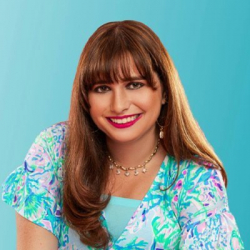Something I have learned from working in disability communities, and as part of broader diversity, equity, and inclusion conversations, is that everyone inevitably messes up. It’s hard for us to challenge what we know, what is socially and culturally ingrained in us, and change with our evolving understanding of the world around us.
When I was in high school, I was part of an anti-bullying campaign called Words That Hurt that made elementary and middle school students rethink the slurs and language they used. Most of my co-presenters and facilitators focused on racial and homophobic slurs, but I was always the one who talked about disability and the “r-word.” Students usually were onboard with ending the word – a campaign that took root with and was also even removed from federal statutes with Rosa’s Law in 2010. Removing the “r-word” from our vocabulary is one of most peoples’ first forays into unlearning ableist language.
But sometimes, those slip-ups and screw-ups are more public than accidentally misgendering your transgender or nonbinary colleague or forgetting about the “r-word” being offensive and in poor taste. Sometimes, you mess up on a very public stage. You might be a celebrity like Lizzo, using an ableist slur in your most-recent hit. And, as Lizzo points out, she’s also a marginalized person – she’s an unapologetic, fat Black woman who is entirely herself. How do we ask for accountability without feeding into anti-Blackness, fatphobia, or sexism (or hold Lizzo to a standard we don’t hold other problematic celebrities to).
It’s also why Lizzo’s recent apology for her song “Grrls” is a masterclass in accountability. She used the term “spaz,” which is a slur towards disabled people that derives from spastic paralysis. She put an empathetic statement showing her listening and learning from harmed disabled communities, and re-recorded and reissued the song without the slur.
What’s important isn’t this idea of “cancel culture” or shaming people for their mistakes, it’s taking accountability. When we talk about accountability, I like to think about the ideas from civil rights activist Loretta J. Ross about calling people out versus calling people in. When we call people out (typically), we assume the worst of intentions, they are a public figure, or they are actively hurting others and we want them to stop doing something harmful immediately. Meanwhile, in most of our lives (and especially within DE&I), we do our best to call people in.
“Calling people in” is rooted in empathy and understanding. It also can be more private and humanizing. I find myself doing this a lot, sharing how perhaps someone may have made me feel small or affected me with their words or actions. In short, we’re turning honest or ignorant mistakes into teachable moments, recognizing there is no intent to harm, and that everyone is capable of learning and growing. When we know better, we can do better.
So what does it mean to really take accountability, like Lizzo did with her song? It means recognizing a few things, like when you are part of the problem, work on yourself, give a genuine, authentic apology and commitment to do better, and recognize the harm. It’s an introspective process. It is not fun realizing you’re wrong or hurt someone or a group of people. Again, everyone at some point in our lives has screwed up, whether on accident or on purpose. Unbeknownst to you, you may have hurt other people or a group of people based on your words and actions. It’s what you do next that’s really what counts. Do you give an empty apology, or do you really take to heart what you’ve done and grow from that moment, especially if others have been kind enough to call you in and give you space to learn from their labor and raw emotions?
If it’s up to me, I’m always choosing to be accountable – even when, no, especially when – it’s the most difficult choice to make. What path will you take?
About the Guest Author

Haley Moss, Esq.
Haley Moss made international headlines for becoming the first documented openly autistic attorney admitted to The Florida Bar. She received her Juris Doctor from the University of Miami School of Law in 2018 and graduated from the University of Florida in 2015 with her B.S. in Psychology and B.A. in Criminology. Haley is a speaker, educator, scholar, and consultant on neurodiversity at work, the Americans with Disabilities Act, autism, and disability-adjacent topics.

